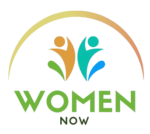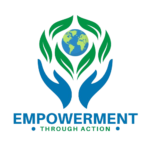Women Now
Empowering Women, Driving Change – Unlocking Tanzania’s Future.
Welcome!
Who We Are
Women Now (WoN) is a women-led organization based in Tanzania, dedicated to empowering women by promoting economic independence, improving access to healthcare, WASH (Water, Sanitation, and Hygiene), and advancing social justice.
Through a range of programs and initiatives, the organization provides women with the skills, resources, and support necessary to achieve financial self-sufficiency, enhance their well-being, and overcome societal challenges.
See
Our Mission
To empower women, especially in rural Tanzania, by tackling systemic barriers in economic development, Health, WASH, and Social rights through focused interventions, capacity building, advocacy, and partnerships that reflect the real-life experiences of women in communities.
Women
Women Now is committed to breaking down barriers, enabling women to build sustainable livelihoods, take control of their futures, and make meaningful contributions to their communities.
Zainabu , ,
Women Now graduate - Arusha
ECONOMIC
WELL-BEING
A significant portion of Tanzania’s population, especially in urban areas, relies on the informal sector for livelihoods, with women playing a central role. Women constitute 60-70% of informal employment, engaging in activities like small-scale trading, street vending, and artisanal work. However, they face challenges such as limited access to credit, lower earnings (30-40% less than men), and lack of social protections. Cultural norms and gender-based barriers further restrict their economic growth.
WATER SANITATION
AND HYGIENE (WASH)
In Tanzania, like many other developing countries, the burden of water collection disproportionately falls on women and girls. Nearly two-thirds of households in Tanzania rely on women to collect water, and in households where children are responsible for this task, girls are twice as likely as boys to undertake it.
HEALTH
Tanzania faces significant challenges in maternal and reproductive health, with a high maternal mortality rate (MMR) of 556 deaths per 100,000 live births (World Bank, 2020). Major causes include hemorrhage, sepsis, unsafe abortions, and obstructed labor, many of which are preventable with access to skilled healthcare. However, only 63% of births are attended by skilled health personnel, with rural areas particularly underserved at 55% coverage compared to 85% in urban areas (TDHS 2022).
SOCIAL
JUSTICE
Social justice in Tanzania faces significant challenges, particularly for women, who continue to experience disparities in access to resources, opportunities, and rights. According to the World Bank (2022), while Tanzania has made progress in gender parity in primary education, with a 94% enrollment rate for girls, dropout rates remain high, especially in secondary school, due to factors like early marriage and poverty.
Features / 01
Features / 02
Lorem ipsum dolor sit amet, consectetur adipisicing elit, sed do eiusmod tempor incididunt ut labore et dolore magna aliqua. Ut enim ad veniam, nostrud mattis luctus.
Features / 03
Lorem ipsum dolor sit amet, consectetur adipisicing elit, sed do eiusmod tempor incididunt ut labore et dolore magna aliqua. Ut enim ad veniam, nostrud mattis luctus.
Get Involved
Become A Volunteer
Women Now (WoN), a dynamic women-led organization based in Tanzania in need of passionate international volunteers to join our mission of empowering women across Mainland Tanzania and Zanzibar. As a volunteer with Women Now, you will not only make a tangible difference in the lives of women but also immerse yourself in the rich cultures and vibrant communities of Tanzania and Zanzibar.


